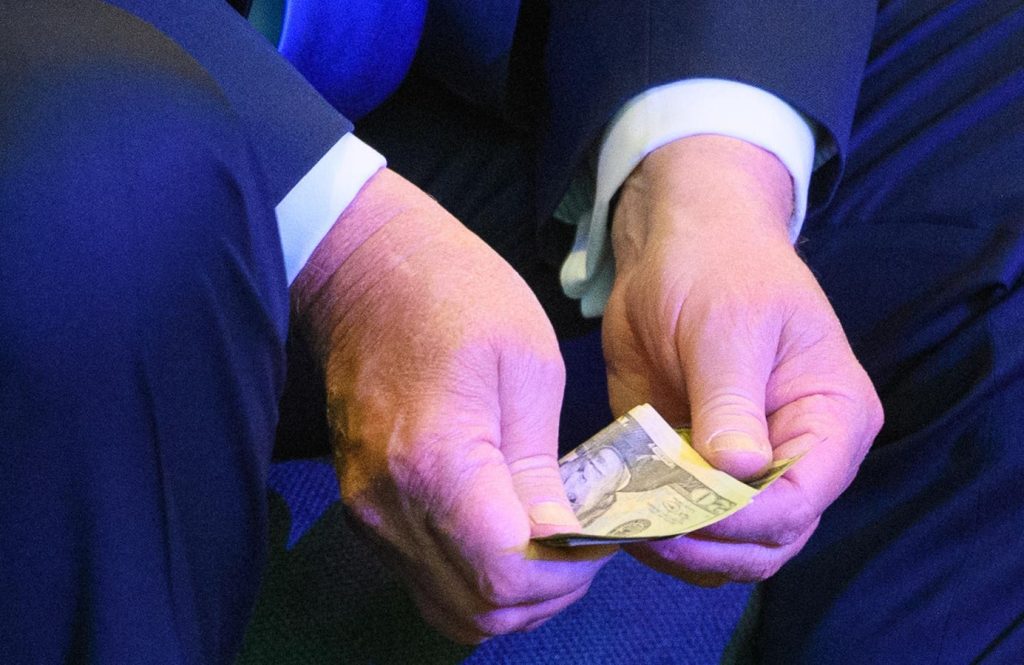Former President Donald Trump is on the verge of a $2.9 billion windfall after shareholders of Digital World Acquisition Corp. approved a merger with his Trump Media & Technology Group. However, this massive sum will not help Trump pay the $455 million in fines and interest he owes to New York state for fraudulently misstating the value of assets for personal gain. His lawyers admitted in a court filing that Trump does not have enough cash to cover the fines while he appeals, despite Forbes valuing him at $2.6 billion in October.
Despite the expected windfall, Trump will not be able to use the shares he receives from the merger as collateral to secure a bond to cover the fines. The merger agreement prohibits the sale of shares for six months and specifically prohibits pledging locked-up shares for use as collateral. Experts in initial public offerings (IPOs) agree that Trump would face substantial risk of litigation if he were to attempt to liquidate his holdings or use them as collateral before the lock-up period ends.
The potential for Trump to alter the lock-up restrictions would require board consent and a stockholder vote, presenting conflicts of interest as Trump and his loyalists will be on the board. Allowing Trump to get out of the lock-up could lead to a decline in stock price, as institutional investors may not step in to stabilize the stock price due to its meme stock nature. This lack of institutional support could lead to increased volatility in the stock price, posing risks for both board members and shareholders.
Board members, including former administration officials Linda McMahon, Robert Lighthizer, and Kash Patel, as well as Donald Trump Jr., will have to navigate the potential consequences of allowing Trump to access his shares before the lock-up period ends. Despite the potential legal and financial risks, there may be ways for Trump to maneuver around the restrictions, though it would likely come with significant challenges and possible litigation.
It remains to be seen how the merger agreement and the restrictions on selling shares and using them as collateral will impact Trump’s ability to address his outstanding fines and legal challenges. The outcome of these restrictions could have significant implications for both Trump and his shareholders, as the value and stability of the company’s stock may be influenced by his ability to access his shares before the lock-up period expires. The situation is complex and may involve legal and financial challenges for all parties involved.


